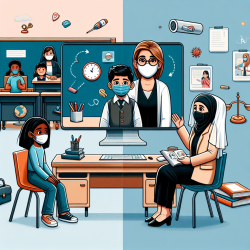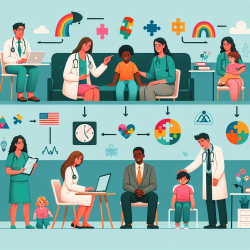Understanding the Impact of Face Masks on Hand-to-Face Contact in Children
The recent study titled "Effect of Wearing a Face Mask on Hand-to-Face Contact by Children in a Simulated School Environment" provides critical insights into how face masks influence children's behavior in school settings. This research, conducted as part of the Back-to-School COVID-19 Simulation Randomized Clinical Trial, offers valuable data that can inform practitioners working with children in educational environments.
Key Findings from the Study
In this randomized clinical trial involving 174 children aged 5 to 18 years, researchers aimed to evaluate whether wearing a face mask would lead to increased hand-to-face contact, potentially raising the risk of self-inoculation and virus transmission. The study concluded that the rate of hand-to-face contact was not significantly different between children wearing face masks and those who were not. Interestingly, the rate of hand-to-mucosa contact was significantly lower in the mask-wearing group, suggesting that masks might reduce the risk of infection through this route.
Implications for Practitioners
For practitioners in speech language pathology and related fields, these findings underscore the importance of evidence-based practices in managing health and safety protocols in schools. Here are some actionable steps practitioners can take based on this research:
- Promote Mask Use: Encourage the use of face masks in school settings as they do not increase hand-to-face contact and may reduce hand-to-mucosa contact, thereby lowering infection risks.
- Focus on Hand Hygiene: Reinforce the importance of regular handwashing and sanitizing, especially since children frequently touch their faces, regardless of mask use.
- Educate on Safe Mask Practices: Provide guidance on proper mask-wearing techniques to minimize unnecessary touching and adjustments, which can reduce potential contamination.
- Further Research: Encourage further research into how mask-wearing affects other behaviors in children, such as communication and social interaction, to develop comprehensive strategies for school health.
Encouraging Further Research
While this study provides a strong foundation, there is a need for ongoing research to explore other dimensions of mask-wearing in children. Practitioners are encouraged to participate in or support studies that examine the psychological, cognitive, and communicative effects of mask use in school environments. This holistic approach will ensure that children receive the best possible support for their development and well-being.
To read the original research paper, please follow this link: Effect of Wearing a Face Mask on Hand-to-Face Contact by Children in a Simulated School Environment.










